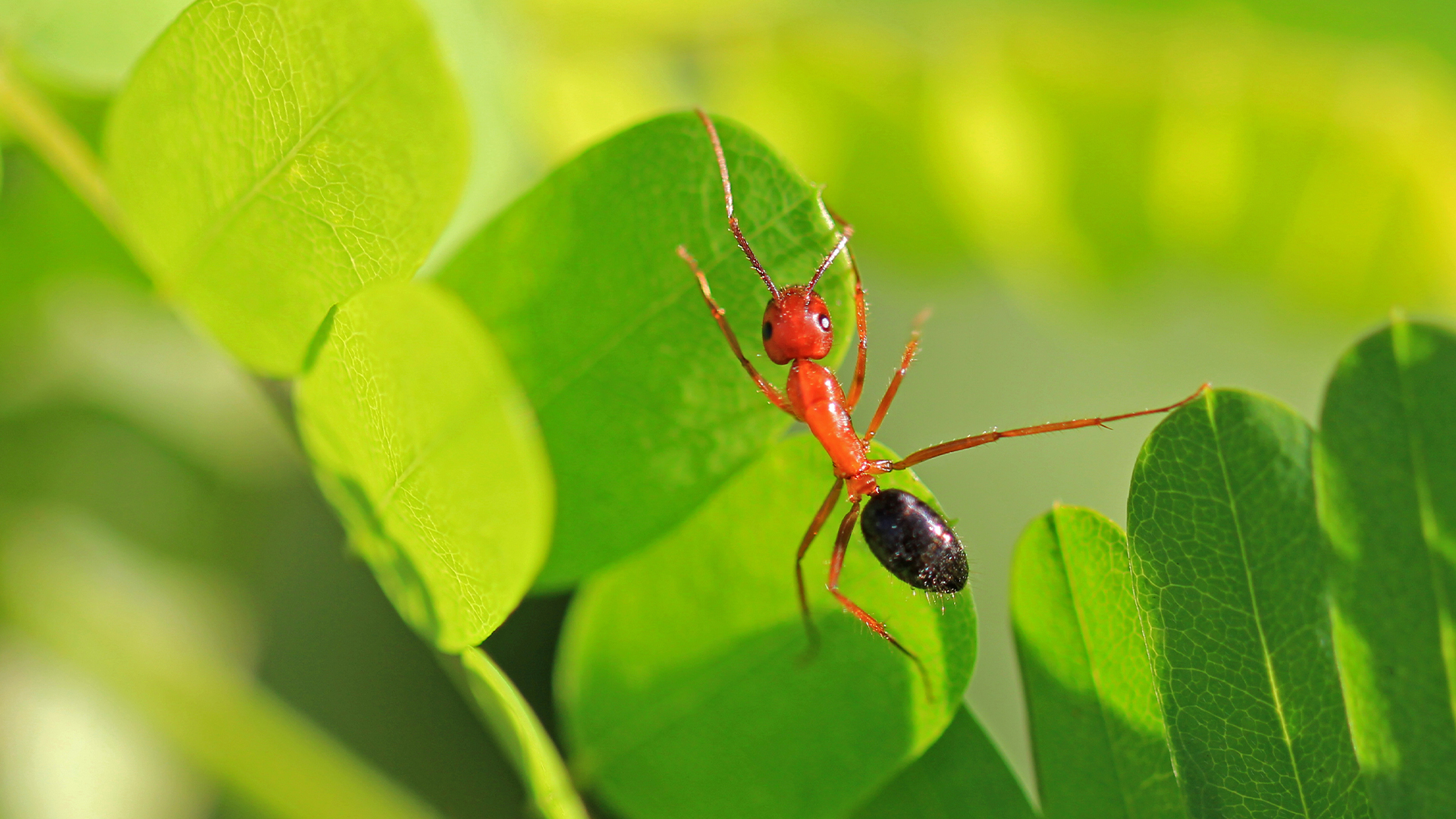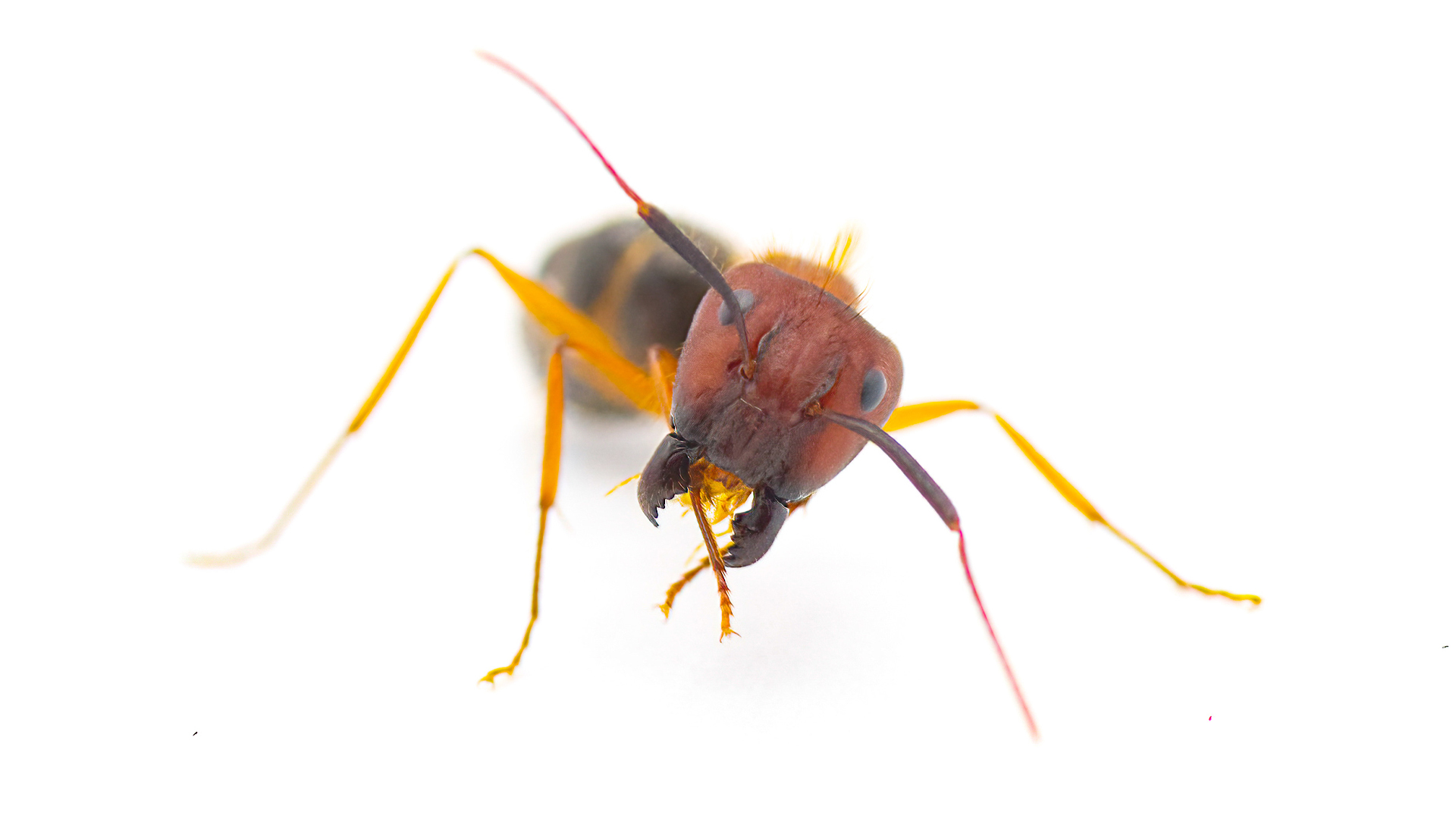Soldier ants turned into foragers by scientists reprogramming their brains
Scientists discovered an enzyme within the ant "blood-brain barrier" that helps control whether an ant ends up a soldier or a forager.

Ants' complex caste system may be partly controlled by the insect version of the blood-brain barrier, a gatekeeper that only lets certain substances into the brain, a new study reveals.
An anthill is a meticulously organized community of insects, with clear divisions of labor to ensure smooth operation. While the queen lays eggs, worker ants either forage for food or protect the nest as soldiers, and the ants' hormones, including one called "juvenile hormone," dictate which role each ant plays.
However, the underlying molecular controls that regulate these hormones to shape social behavior have not been well understood.
Now, a recent study has shown that the blood-brain barrier (BBB), the filter that protects the brain from unneeded or potentially harmful substances, plays a role in this process. The findings, published Sept. 7 in the journal Cell, indicate that the ant BBB regulates hormone levels entering the brain, thus influencing worker ants' roles in the colony.
Related: These ant queens live 500% longer than workers. Now we know why.
In the study, researchers set out to understand the basis of the behavioral differences between forager and soldier ants. They investigated which genes and proteins were expressed differently among these two classes of worker Florida carpenter ants (Camponotus floridanus). They discovered that an enzyme that breaks down juvenile hormone, called juvenile hormone esterase, was present only in the cells that make up the ants' BBBs.

Their analysis revealed that soldier ants had higher levels of juvenile hormone esterase than foragers did, and therefore, less of the hormone was making it into the soldiers' brains.
Sign up for the Live Science daily newsletter now
Get the world’s most fascinating discoveries delivered straight to your inbox.
When the researchers injected juvenile hormone directly into the brains of soldier ants, bypassing the BBB, the ants abandoned their mercenary role and started looking for food. The ants showed a similar shift in social behavior when the researchers reduced their supply of juvenile hormone esterase by manipulating the gene that produces it. Without an enzyme to break it down, juvenile hormone reached the ants' brains and reprogramed their behavior.
Previous studies had reported that the BBB may regulate the hormone levels in the insects' brains, study co-first author Karl Glastad, a researcher at the University of Pennsylvania, told Live Science in an email.
"However, the fact that the ant blood-brain barrier was dynamically regulating juvenile hormone between these two worker types in a way that controlled such an important behavior was definitely surprising to us," he said.
"That the access of juvenile hormone to the brain is regulated so tightly at the level of the blood-brain barrier is a really cool finding," Daniel Kronauer, an evolutionary biologist at The Rockefeller University who was not involved in the study, told Live Science in an email.
To see whether the enzyme would affect a less socially complex insect, the research team conducted experiments in fruit flies (Drosophila melanogaster). Switching on the gene for juvenile hormone esterase in the fly BBB triggered behavioral changes similar to those seen in ants: The genetically modified flies spent less time looking for food than their unmodified peers did.
Understanding what factors control the amount of juvenile hormone esterase that ends up in an ant's BBB requires more work, Glastad said. But these findings do highlight an unappreciated role of the BBB in insects. It is more than a passive sieve — it is an active component of an entire behavioral circuit, he said.
To explore whether other animals use similar mechanisms to control which hormones enter the brain, the researchers analyzed published data from other labs. They found that some hormone-degrading enzymes are also present in cells of the mouse BBB. (Similar enzymes have not been found in the human BBB, but the structure controls hormones in other ways.)
"It would be extremely surprising to me if other similar independently-evolved mechanisms do not exist in other organisms," Glastad said.
Although Kronauer said he was cautious about extending the findings from insects to mammals, he acknowledged the possibility that the BBB in mammals may have similar systems that regulate hormone levels in the brain by breaking the molecules down.
"But that will require more experimental work to figure out," he said.

Sneha Khedkar is a biologist-turned-freelance-science-journalist from India. She holds a master's degree in biochemistry and a bachelor's degree in microbiology and biochemistry. After her master's, she worked as a research fellow for four years, studying stem cell biology. Her articles have been published in Scientific American, Knowable Magazine, and Undark, as well as several Indian platforms such as The Hindu and The Wire Science, among others. Besides writing, she enjoys a good cup of tea, reading novels and practicing yoga.










